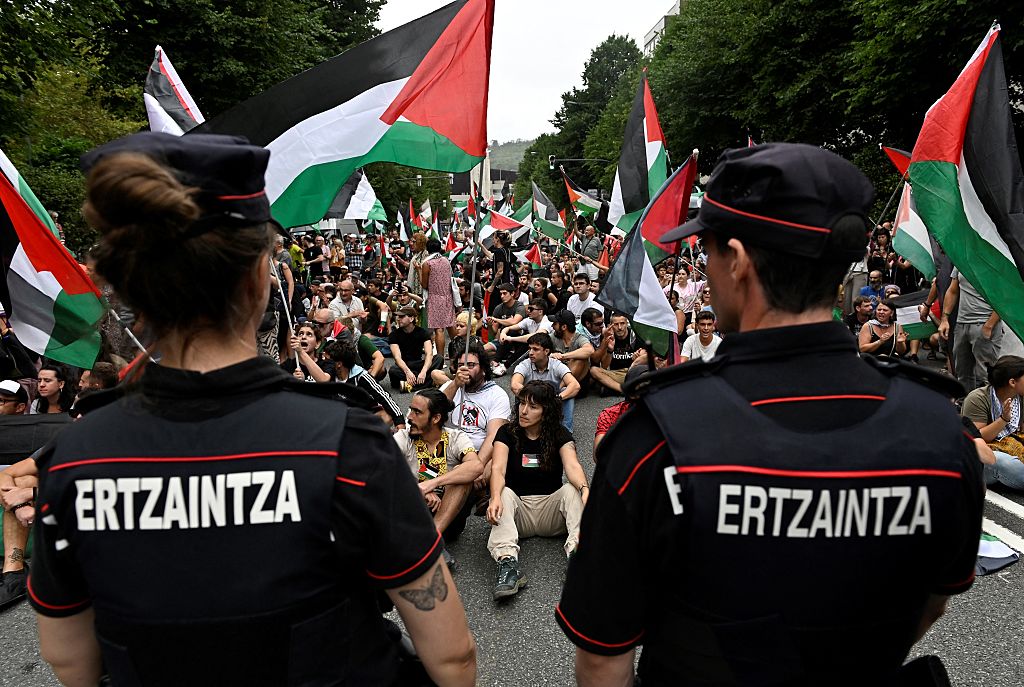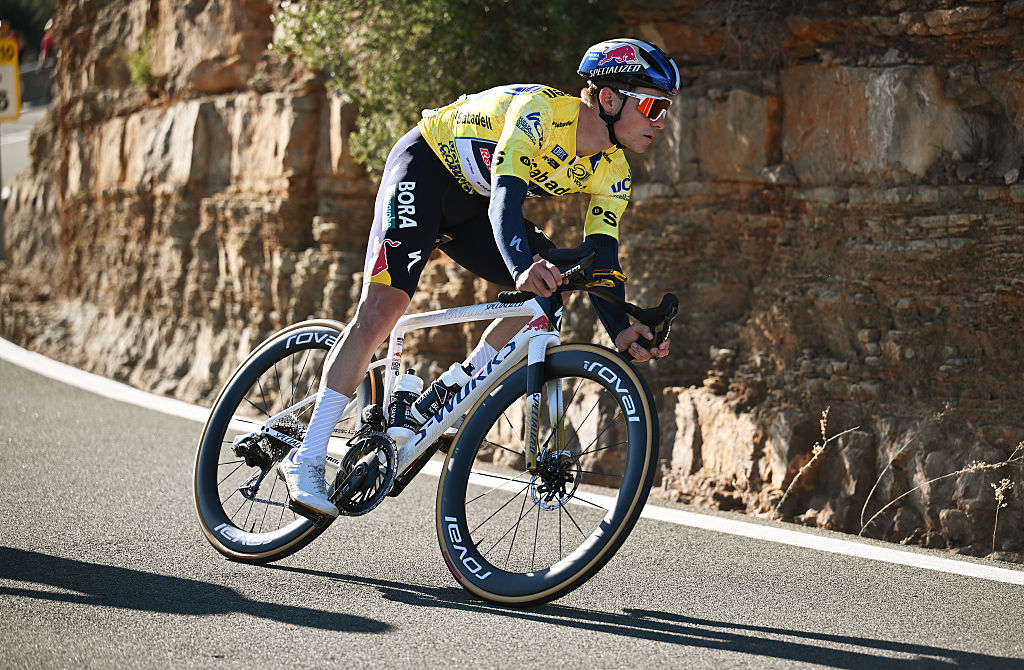'We hope decisions will be taken quickly' - Vuelta a España organisers remain cagey about continuing participation of Israel-Premier Tech squad after stage partly suspended due to pro-Palestine protests
Race technical director Kiko García says had lengthy discussions with team before stage

The latest race content, interviews, features, reviews and expert buying guides, direct to your inbox!
You are now subscribed
Your newsletter sign-up was successful
Vuelta a España organisers Unipublic are remaining cagey about the ongoing participation of Israel-Premier Tech in the race, with technical director Kiko García telling media that he hopes whatever decision is taken is that it is done quickly.
Stage 11 of the Vuelta a España in Bilbao was partly suspended, and the last three kilometres of the day's racing were cancelled with no winner after pro-Palestine demonstrators, protesting against the presence of Israel-Premier Tech at the race.
Surrounded by a sizable cluster of journalists, García was unable to say what the future of Israel-Premier Tech would be in the race, but he did make it clear that rapid action was needed given the precarious situation in which the Vuelta now finds itself.
"I would like to think that in this situation a lot of people will react, we've been in contact with the UCI and we told them before the race came to Spain [on stage 5], we knew that some members of the public here were very implicated in the protests.
"But there haven't been any changes up to now of no type, we hope that there will be rapid changes, because time is rolling on."
The Vuelta a España race director, Javier Guillén, had already been very critical of how pro-Palestine protestors had tried to block the road to stop Israel-Premier Tech during the team time trial, promising court action against those involved.
Guillén did not make declarations to the media after the latest protests, although after the stage 5 blocking of the route by protesters, he had pointed out that the team was not a wildcard invitation but was able to take part on its own merits in the UCI ranking system. In 2025, Israel-Premier Tech were automatically invited to every WorldTour race as one of the top two ProTeams, cycling's second-tier league.
The latest race content, interviews, features, reviews and expert buying guides, direct to your inbox!
However, on this occasion, rather than a single team the entire race has been affected by the protests, sparking a much more lengthy series of answers from García in the area where team buses were parked outside Bilbao's San Mames football stadium.
"The decision was taken to stop the stage at three kilometres to go because the situation was very tense; we either cancelled it completely or did what we could," García said, speaking in English, then French, then Spanish.
"So after talking through it with he team, we opted to end the race where we did. So the official times stand, and we wanted the sporting situation to be the best possible.
"Our objective is to continue, and we hope that after tomorrow [Thursday] things will be calmer. We will do everything we can to continue."
"It's been a very hard day for everybody. I'd like to think today was very complicated. We knew that protests could happen, but really, we've been surprised by the number of protesters there have been at the finish."
When the race went through the finish for the first time at the start of the final circuit round Bilbao, he said, they had seen the situation was "almost out of control and we had to react."
García said that, given it had long been anticipated that the pro-Palestine protests in the Basque Country had been expected to be the biggest, he hoped things would calm down.
"We know that if there are no reactions or there are no changes in any way, then the protests will continue. As we've said, we have no choice but to follow the rules. The team's participation is obligatory, and whoever can decide the opposite - that isn't us.
"Our duty is to protect the race, of course, the riders and the teams - and we're moving on that."
Subscribe to Cyclingnews for unlimited access to our 2025 Vuelta a España coverage. Our team of journalists are on the ground from the Italian Gran Partida through to Madrid, bringing you breaking news, analysis, and more, from every stage of the Grand Tour as it happens. Find out more.
Alasdair Fotheringham has been reporting on cycling since 1991. He has covered every Tour de France since 1992 bar one, as well as numerous other bike races of all shapes and sizes, ranging from the Olympic Games in 2008 to the now sadly defunct Subida a Urkiola hill climb in Spain. As well as working for Cyclingnews, he has also written for The Independent, The Guardian, ProCycling, The Express and Reuters.
You must confirm your public display name before commenting
Please logout and then login again, you will then be prompted to enter your display name.

